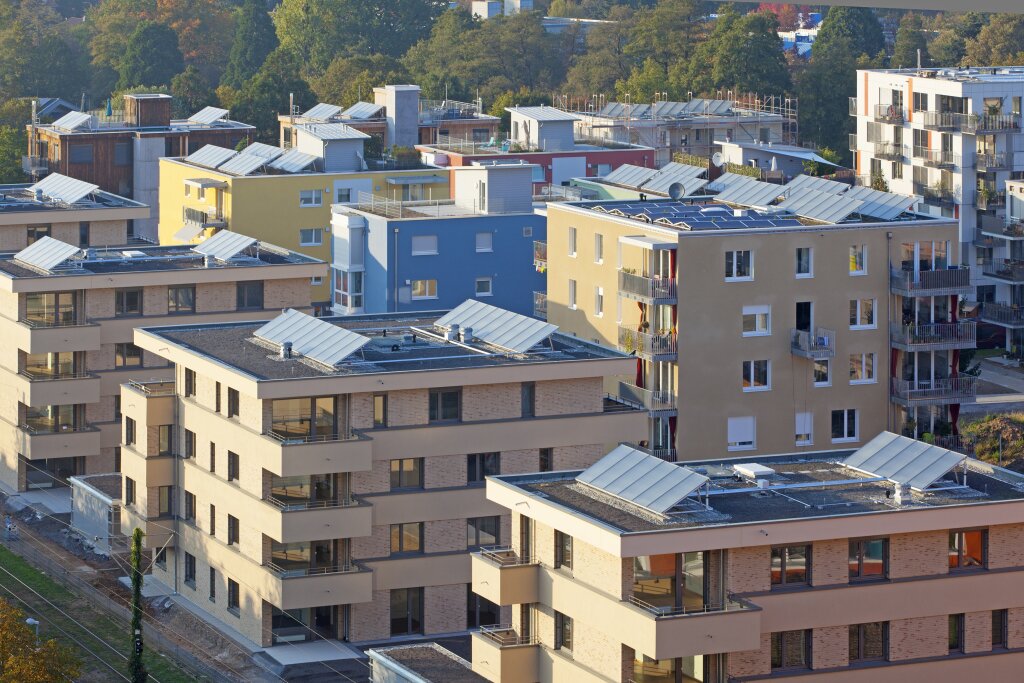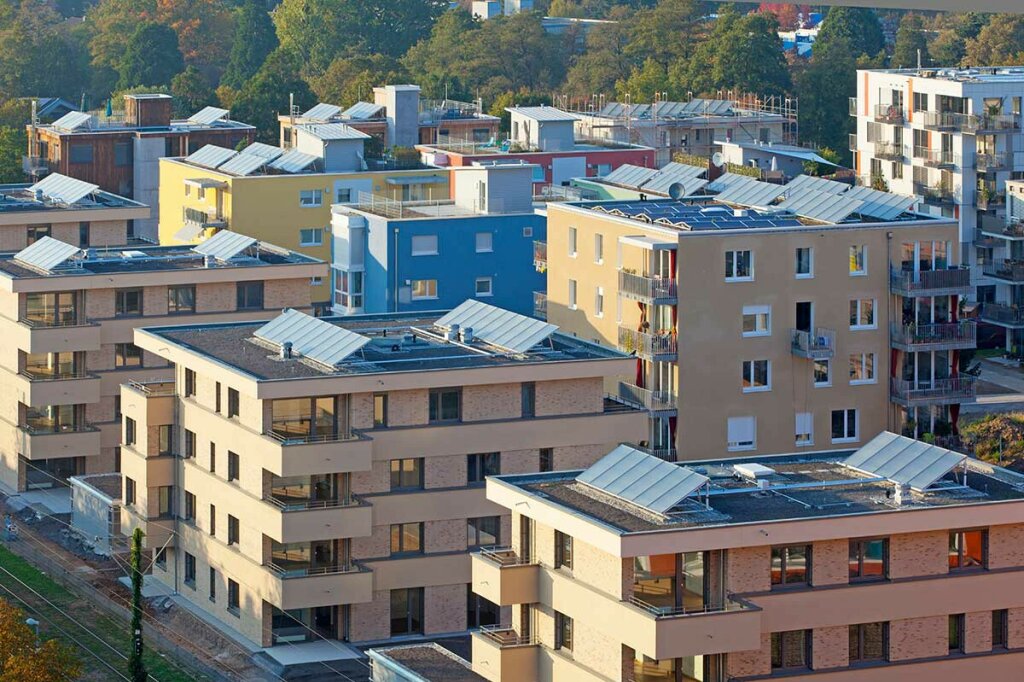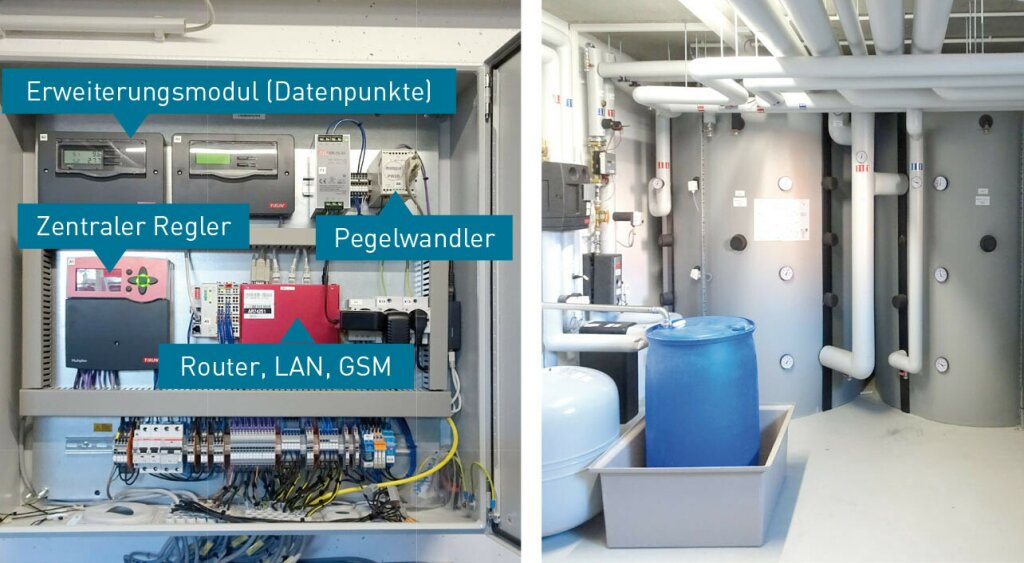The solar heating network
In the newly built quarter with 525 apartments, badenova-Wärmeplus GmbH & Co. KG installed a solar local heating supply. The special feature: Yield surpluses of individual solar systems can be transported to defined buildings without having to put the entire grid into operation. This cooperative supply model guarantees minimal heat distribution losses and a higher solar energy share in the network.
The remaining demand in winter and in the transitional periods is covered by a district heating network based on a biogas CHP plant. This district heating network can be connected on a pulse basis.
The mondas® IoT platform uses AI algorithms to analyze the operating states of the solar systems in real time and forecast heating requirements.
The project is scientifically accompanied by the Fraunhofer Institute for Solar Energy Systems ISE.
Features of the mondas® IoT Platform:
acquisition and analysis of measurement data, forecast of future demand values
commissioning monitoring of the decentralized solar systems
implementation of AI control algorithms in analytic software
control of the intelligent solar heating network
Over 4,000 Measurement Points Monitored in Real Time
The mondas® IoT platform collects all the necessary measurement and yield data from all 38 solar systems, as well as the forecast demand values. The IoT platform analyzes data from over 4,000 measurement points in real time. The Fraunhofer Institute for Solar Energy Systems ISE developed the corresponding control algorithms.
Many Advantages for Climate and Environment
The pulsed operation of the heating network results in numerous advantages:
reduced heat distribution losses in the network
less residual energy demand from district heating
maximum use of local solar energy potentials
electricity market-oriented operation of the CHP plants



